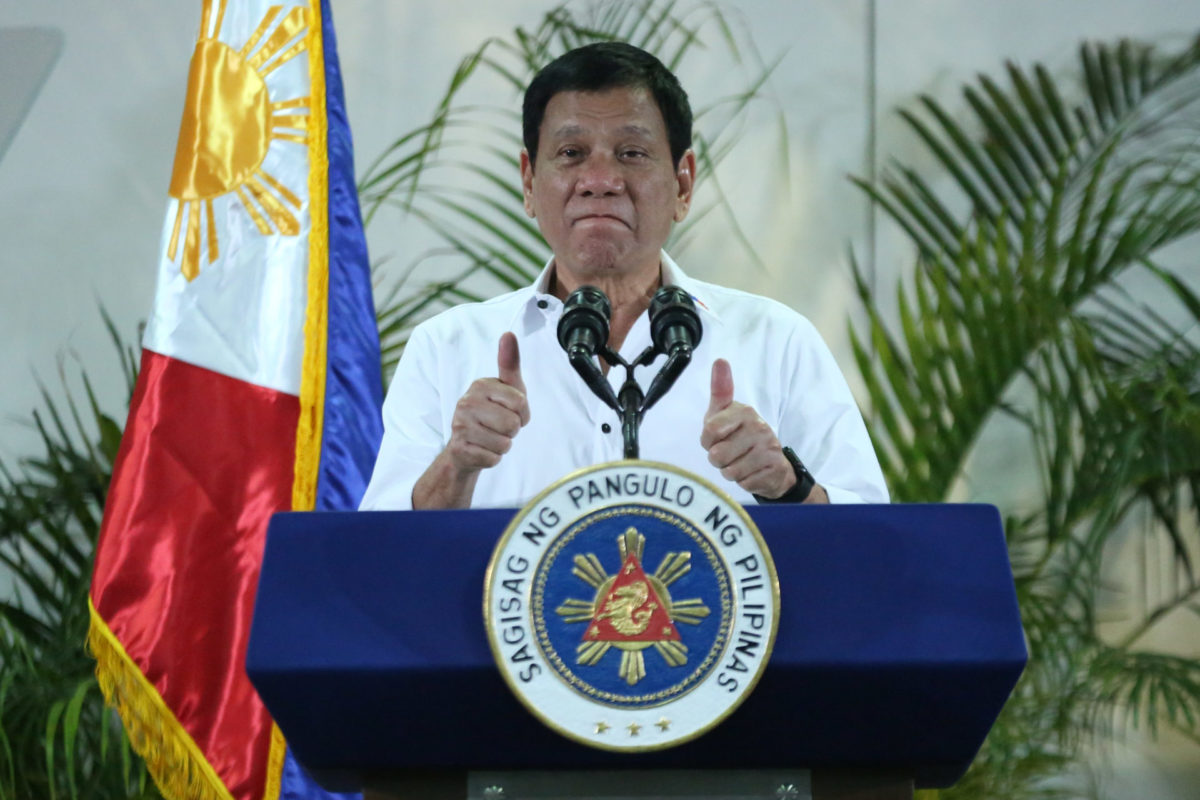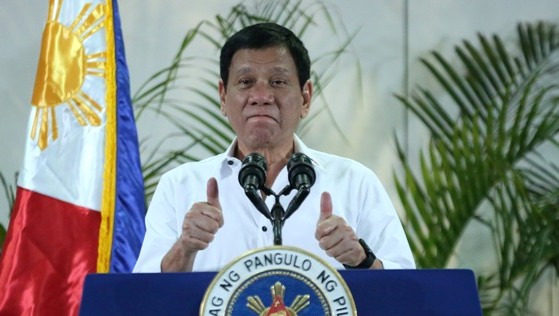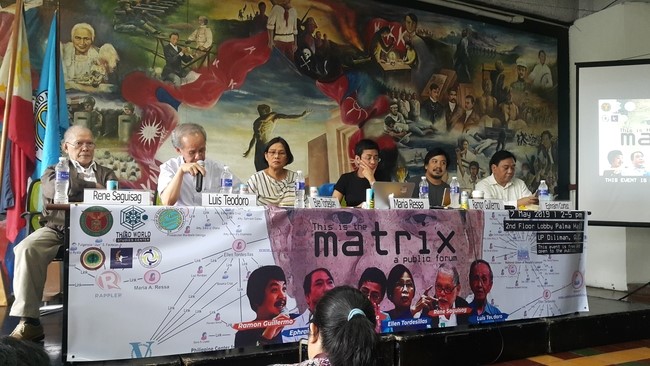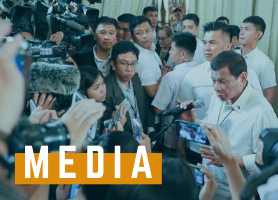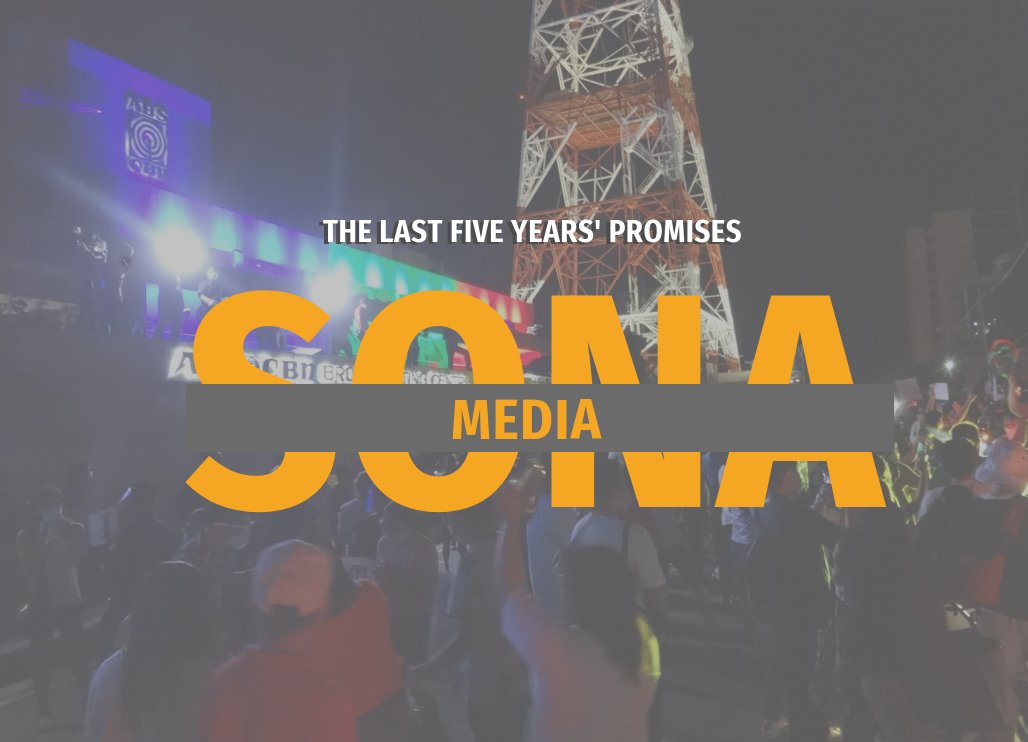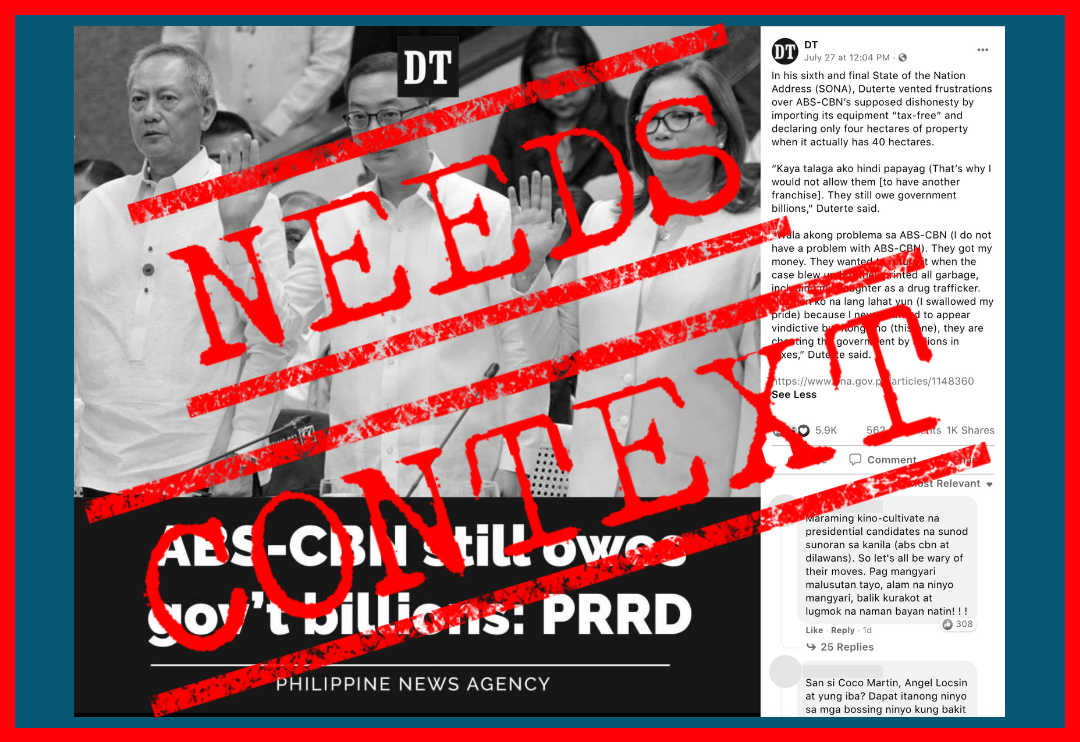Duterte seesaws with media from VERA Files on Vimeo.
PRESIDENT Rodrigo Duterte on Sept. 10 told the media to go ahead and criticize him and his government’s shortcomings, saying it is their sworn duty. Not so long ago, he dared reporters to kill and stop journalism in this country.
STATEMENT: Straight from the recently concluded Association of Southeast Asian Nations (ASEAN) Summit in Vientiane, Laos and a working visit in Indonesia, a metamorphosed Duterte faced the press that day in Davao City:
“Do not hesitate to attack me, criticize me if I do wrong in my job. It is your duty to our country as I have my duty to the people to serve you….It is embodied in the Constitution. The freedom of the people to be informed, and a media that is there to find out the true and accurate.”
Duterte said he holds no grudges against the press despite what he earlier dubbed as a “media spin” that prompted American president Barack Obama to cancel their meeting during the summit.
Mistakes from the media are welcome, for as long as they were committed without malice, Duterte said.
He even hailed the media for their accurate portrayal of history as it happens.
“Every day that you press that ‘on’ button (of) your camera, you record the history of this country. Pero with an accurate and true representation of what’s going on, I say saludo ako.”
(Source: Press Conference, Davao City, Sept. 10, 2016. Watch from 19:00-21:09)
FLIP-FLOP: The president has had a rocky relationship with the media for statements on media killings, among others.
In a May 31 press conference, a month before his inauguration, Duterte said:
“Hindi na madala ng free speech yan, hija. The Constitution can no longer help you pag binaboy mo ang isang tao.”
“Karamihan diyan sa third (category), extortion yan. Kaya pinapatay yan.”
Kung journalist ka lang na tama, wala namang gagalaw sayo. Especially if it is true. You cannot hide the truth, by the way.”
(Source: Press Conference, Panacan, Davao City, May 31, 2016. Watch from 4:44-6:02)
Three days later, in a press conference in Davao City, Duterte changed his mind:
“In journalism, when you speak the truth firmly, then you invite danger.”
(Source: Press Conference, Davao City, June 2, 2016. Watch from 6:05-7:00)
In the same briefing, he denounced attacks from the media, a profession which he said is highly ridden with corruption.
In his book, there are three kinds of journalists in the country: the “crusaders” or those who bare the truth for the public; the “mouthpieces of vested interests”; and the “lowlifes” of the profession, or those who engage in extortion activities.
(Source: Press Conference, Davao City, June 2, 2016. Watch from 0:30-2:36)
The president explicitly admitted having given money and favors to journalists in the past, and even offered to bare a list of their names:
“Do not ever think that you are in a field of purity. Kung magsalita kayo then you slam me for what. God***…I have my own website and attack you and all that I have to do is to make a research of your life, and the life of your children and daughter and I will just put it there.”
(Source: Press Conference, Davao City, June 2, 2016. Watch from 4:41-5:46 and 17:29-18:00)
Responding to calls for a media boycott by the Paris-based Reporters without Borders, an incensed Duterte further said:
“Mag-boycott na kayo. As a matter of fact, I’m urging you, make this trip the last in Davao City……I’m challenging you, guys. Kill journalism, stop journalism in the country. If you are worth your salt, you should accept the challenge.”
(Source: Press Conference, Davao City, June 2, 2016. Watch from 27:34-31:30)
The National Union of Journalists in the Philippines rejected calls to boycott Duterte as it would mean abdicating their duty to inform the Filipino people.
For a time, Duterte refused to take questions from the media, allowing only the government TV station PTV4 to cover him. Private media outfits, he said, would have to source their reports from PTV4.
On Aug. 1, Duterte ended the boycott, welcoming questions from reporters shortly after the oath-taking of government officials at Malacanang.
Now, he said, criticisms are welcome, too.
